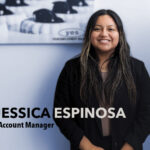
Where Does Diversity Start?
What is the first thing that comes to mind when you think of the word “diversity?”
Is it somebody else’s race or ethnical background? That’s common.
Is it maybe their gender or their religion? Both are also quite common responses.
Both are also correct.
But, what if I said diversity starts with YOU?
The Merriam-Webster Dictionary definition of diversity is “the quality or state of having many different forms, types, ideas, etc.”
You are much different than your neighbor, true? You are also very different from your friends and family members. This also means that you are different from each of your coworkers and even your boss.
What if There Were No Diversity?
But what if you were all the same?
Think about it. What would the world be like if everyone were the same – average in intelligence, talents, appearance, and strength – and no one was better than anyone else? How do you think people would feel and act toward each other? Would they be happy and satisfied? This holds true for your personal and your professional life.
Studies show that teams or organizations made up of individuals with a more diverse mix of qualities, experiences and work styles tend to have available a richer set of ideas, perspectives and approaches to a business issue. Therefore, work is more robust and, in my opinion, more enjoyable. So diversity is cool then, right?!
So next time you find yourself getting very frustrated with a coworker or boss’ suggestions, viewpoints, or ways of doing things, because they seem so far-fetched from your own, just remember that without them life would be boring.
Without diversity, it’s like asking how your Thanksgiving turkey would taste if you didn’t have any flavor to it. The answer is real bad. So bad, that you wouldn’t feel like eating it. Life would be so uninteresting without diversity, and so would work.
SHRM on Diversity
Here is some great information about diversity from the Society of Human Resource Management website:
Diversity has many definitions. Frequently, organizations will adapt the definition to their specific environment. Generally, diversity refers to the similarities and differences between individuals accounting for all aspects of one’s personality and individual identity. Diversity provides the potential for greater innovation and creativity. Inclusion is what enables organizations to realize the business benefits of this potential.
Inclusion describes the extent to which each person in an organization feels welcomed, respected, supported and valued as a team member. Inclusion is a two-way accountability; each person must grant and accept inclusion from others. In such an environment, every employee will tend to feel more engaged and will be more likely to contribute toward the organization’s business results. This requires people from diverse backgrounds to communicate and work together, and understand each others’ needs and perspectives—in other words, demonstrate cultural competence.
Intercultural sensitivity and cultural (or intercultural) competence are characterized by sensitivity to differences among, and effectiveness in communicating and working with, people from different cultural backgrounds.
Diversity at Your Employment Solutions
Here at YES we try to promote diversity by recruiting at different types of hiring events and job fairs in order to find a broad range of talented and unique individuals.
We believe in diversity and value the differing experiences and knowledge each individual and culture brings to the labor market. We would not be able to progress near as well without these differing points of view and perspectives, which help us learn and grow as an employer and best of all, as a team.
Embrace the diversity!
Alison Evans
Director of Human Resources
Your Employment Solutions





